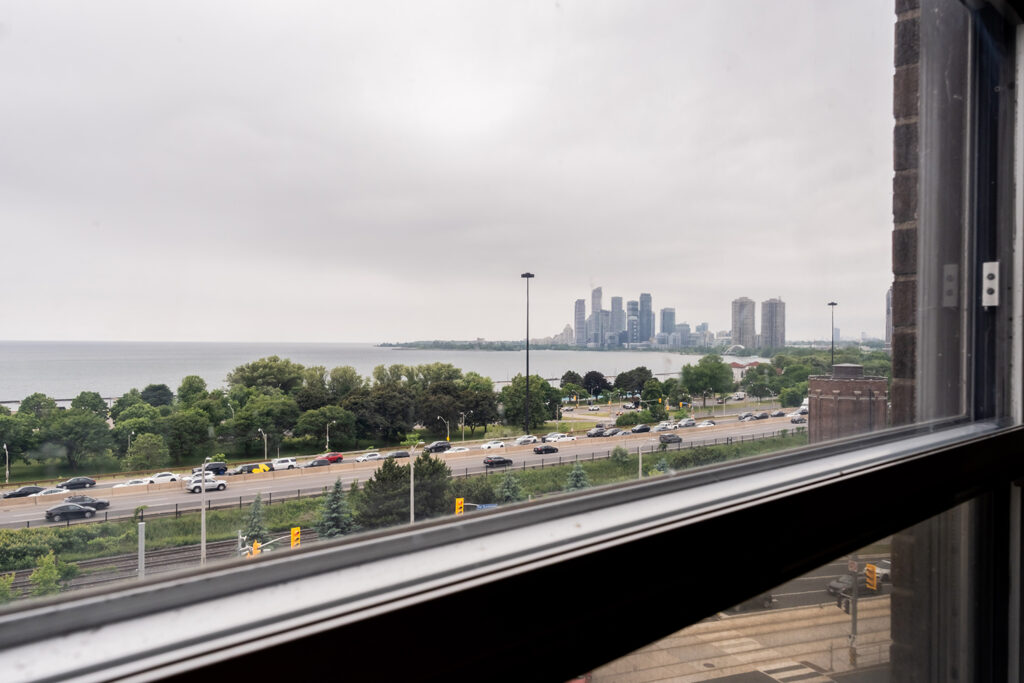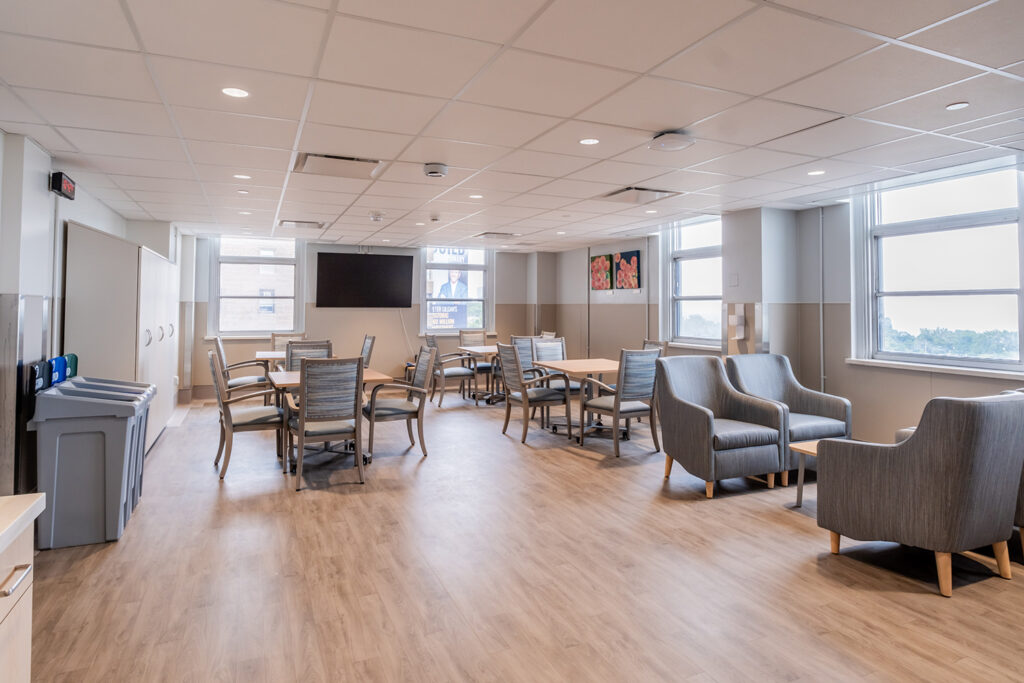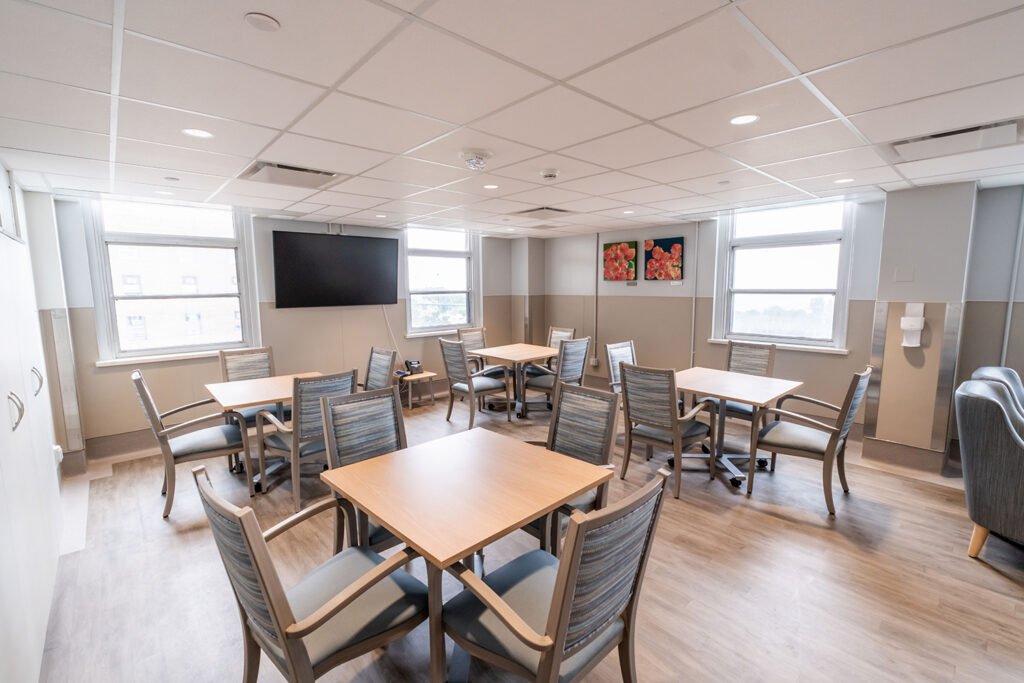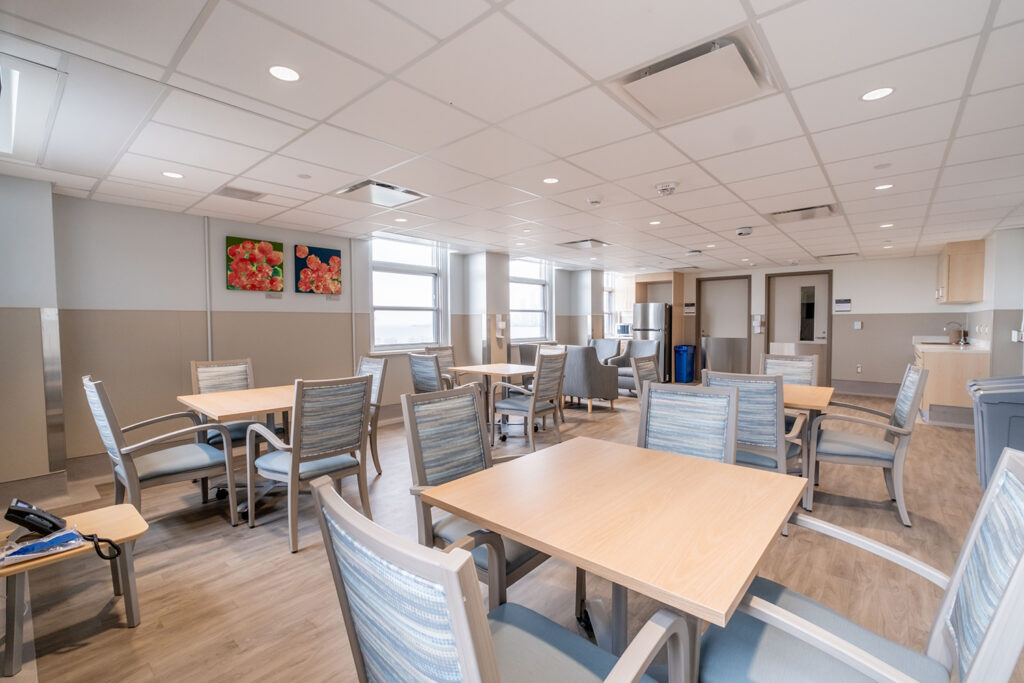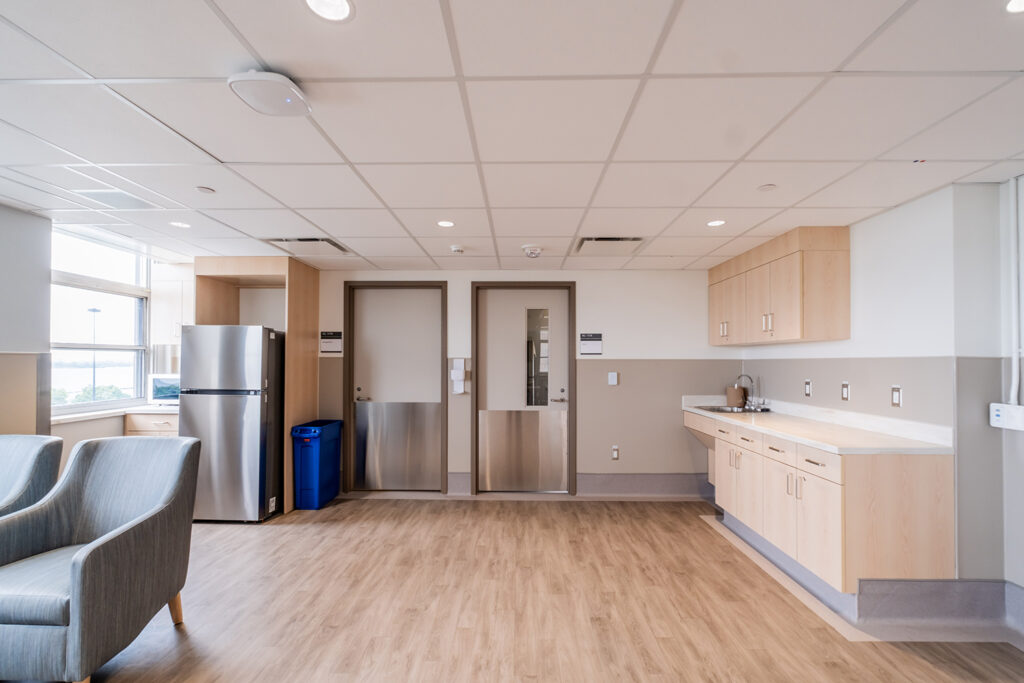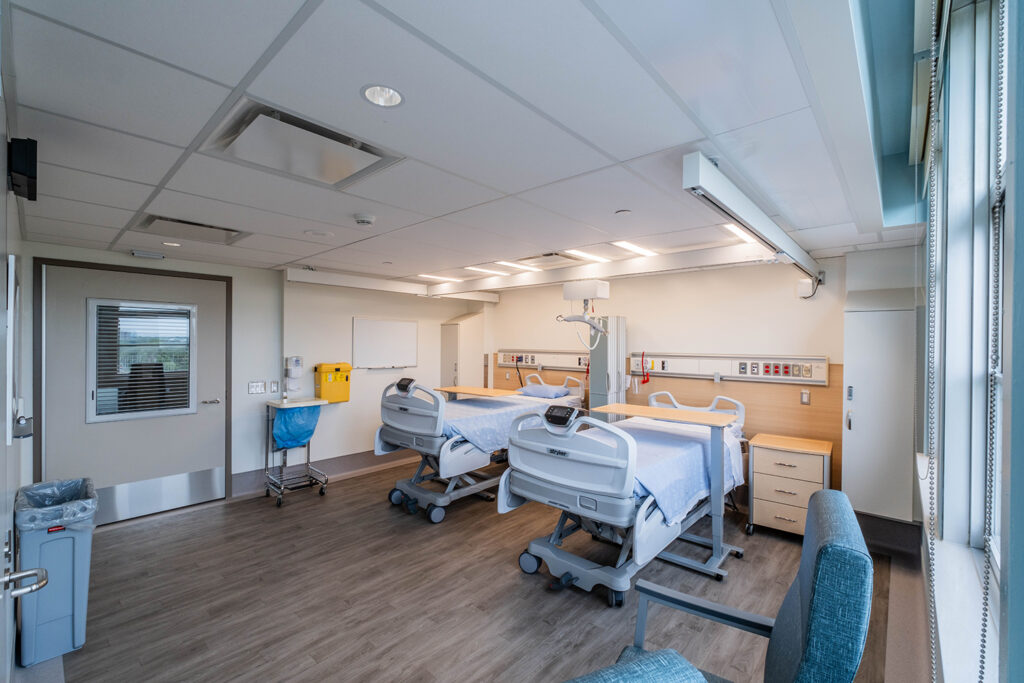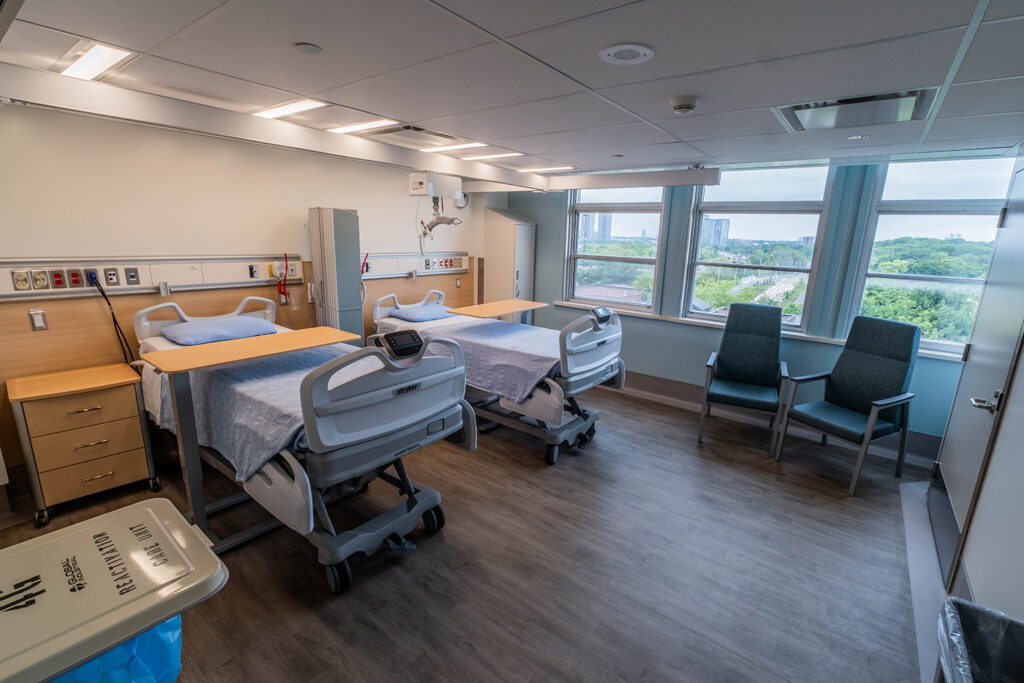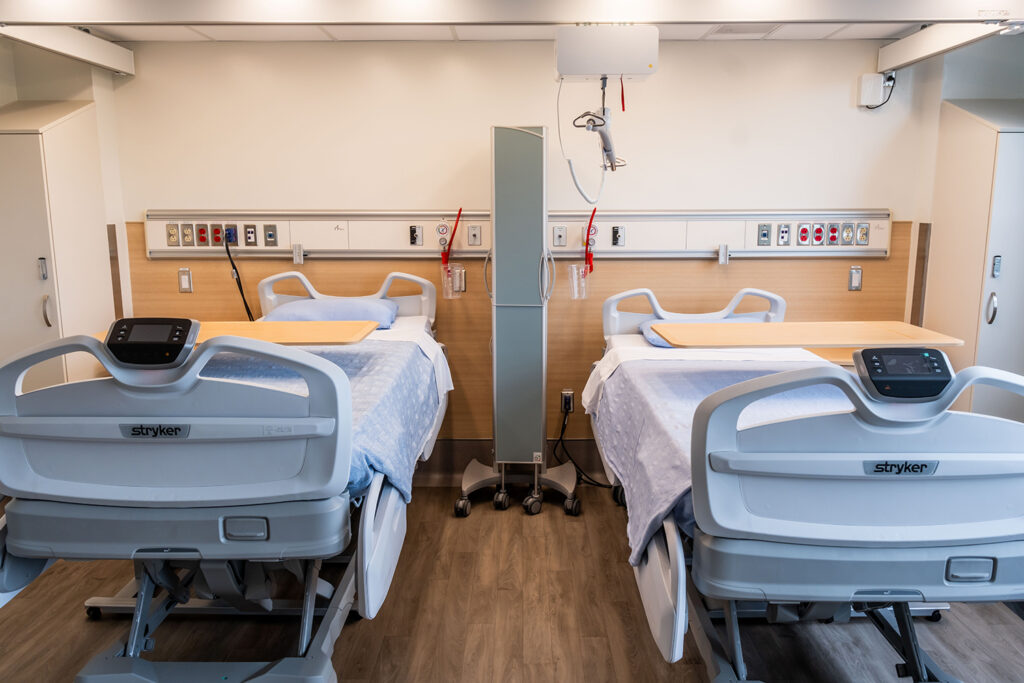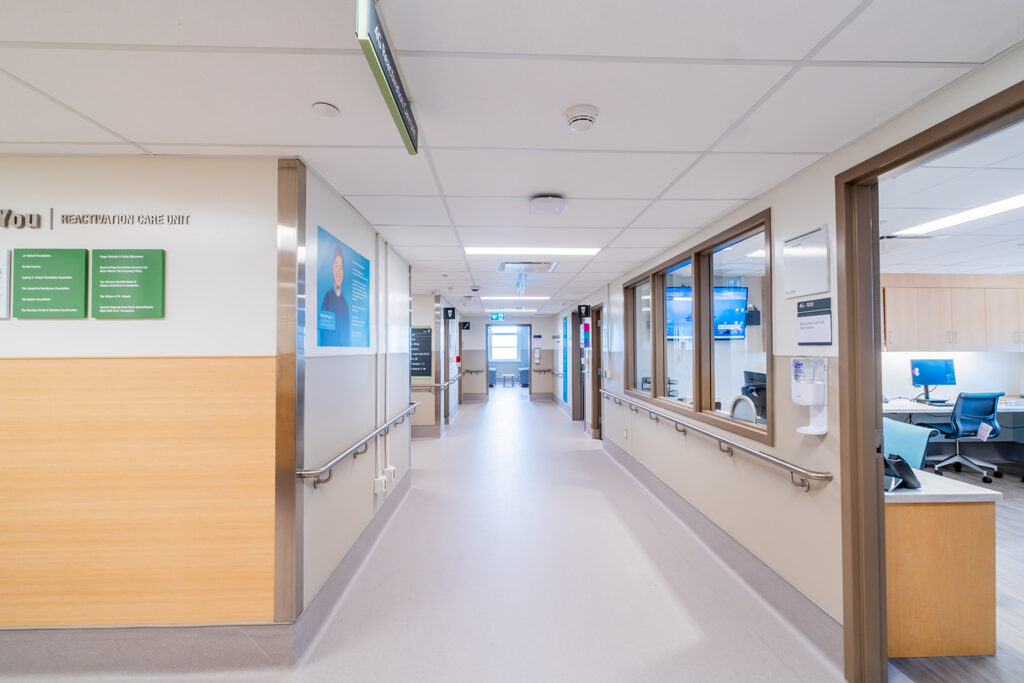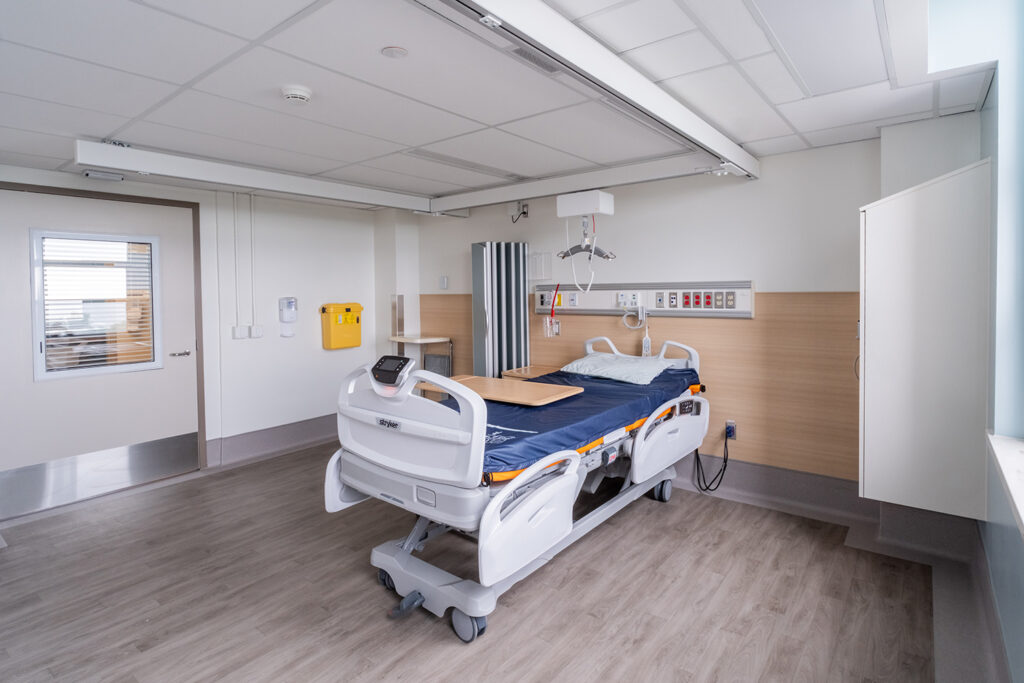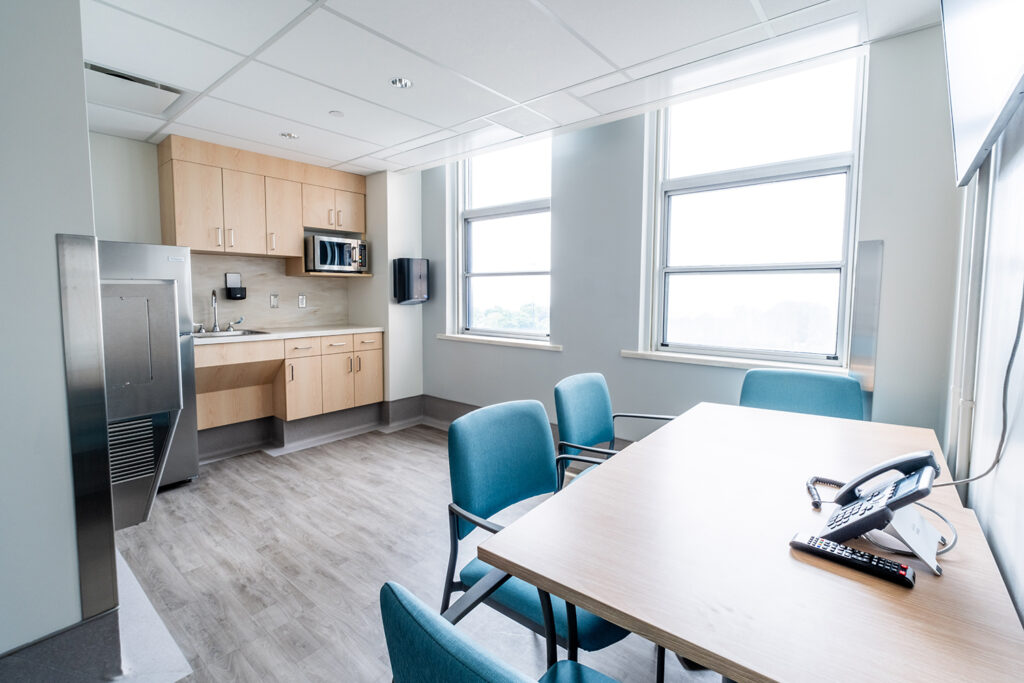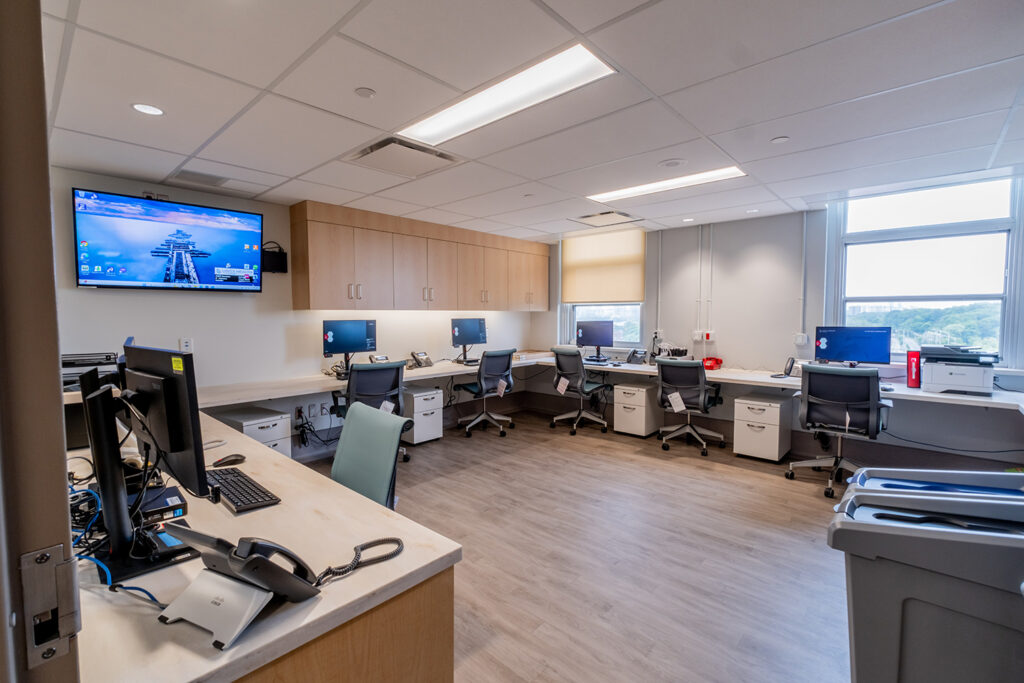St. Joseph’s opens new reactivation care unit to alleviate acute care pressures
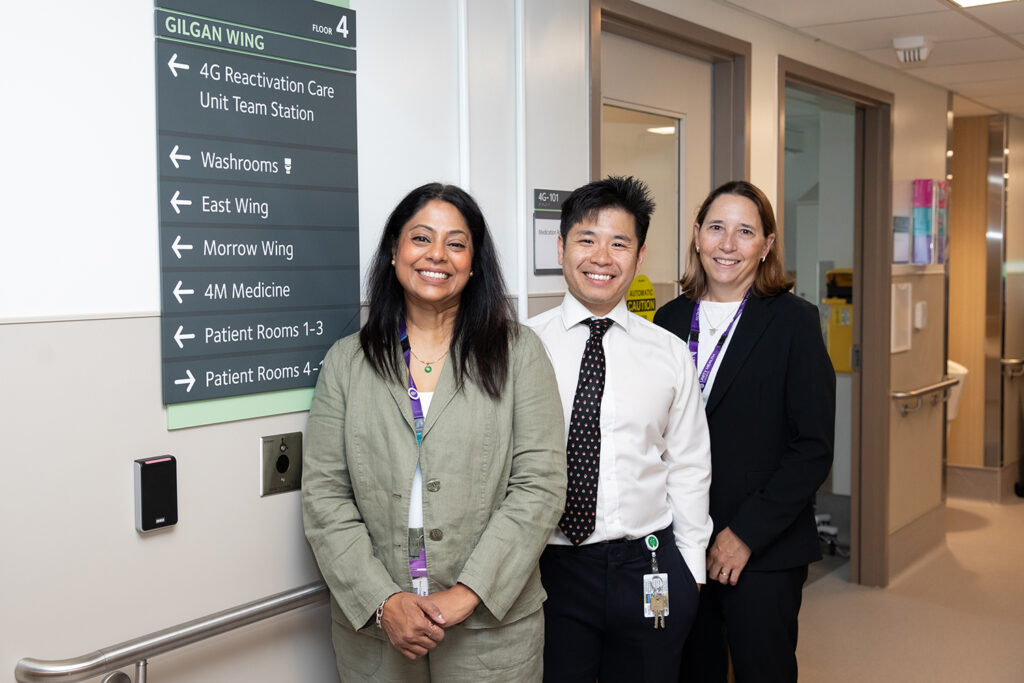
A new inpatient unit at St. Joseph’s Health Centre is freeing up acute care beds, while helping alternate level of care patients (ALC) build their strength and independence before discharge.
The 21-bed Reactivation Care Unit (RCU) opened this summer to provide time-limited, goal-oriented therapy, rehabilitation and activation supports to patients who no longer require acute hospital services but are at risk of physical and cognitive deconditioning while waiting to go to long-term care or their next care destination.
The unit, which is located on the fourth floor of the Gilgan wing, was conceptualized prior to the COVID-19 pandemic in response to ALC pressures at St. Joseph’s and across the health system.
“We were strategizing because of the ALC pressures at the time, and there was consensus that an on-site, inpatient reactivation care unit would help,” says Michael Nguyen, former Clinical Manager of Transitional Care, Reactivation Care, Seniors Health and Ambulatory Care at St. Joseph’s. “We proposed this to the Ministry of Health and with their approval in 2020, we began working on a plan, during COVID-19, to redevelop the space and hire a care team.”
Enjoying this story? Sign up for the Unity Health Toronto newsletter, a monthly update on the latest news, stories, patient voices and research emailed directly to subscribers.
St. Joseph’s has access to beds at the Reactivation Care Centre (RCC) – Church site, which is located near Highway 401 and Jane Street. The new RCU will supplement these off-site beds, while providing the same level of exceptional reactivation care, says Paula Rico, an Occupational Therapist (OT) on the RCU.
“I saw firsthand the benefits of having a reactivation option available to patients and families,” says Rico, who previously worked on the Health Disciplines Resource Team (HDRT) at St. Joseph’s, supporting multiple units across the health centre, including medicine and mental health units, the Emergency Department and the RCC – Church site. “I’m excited that this new unit at our main site will support patients’ recovery in an environment that they’re already familiar with.”
The new unit features both private and semi-private rooms, large washrooms and a calming environment, with paint colours, décor and accessories – such as secure handrails and easy access call buttons – thoughtfully selected and tailored to seniors care. The unit also features a dedicated dining and activity room, making this one of the first reactivation care units in Toronto with these spaces.
“Being able to host classes, run activities and bring patients out of their rooms for meals is essential to their recovery,” says Abdullah Imam, Physiotherapist (PT) on the RCU. “This unit will allow patients to receive all the care they need, but it gets them off an acute care inpatient unit. From a physiotherapy standpoint, I’m really excited to see how this space supports and enables reactivation.”
The unit is staffed by a multidisciplinary care team that includes PTs, OTs, occupational therapist and physiotherapist assistants (OTA/PTA), registered dietitians (RDs), a speech-language pathologist (SLP), nurses, physicians and recreation therapists. Most inpatient units don’t have a full-time recreation therapist, which sets the space apart, says Imam.
“We have recreation therapists at the RCC and seeing how motivated patients are when they get to participate in activities in a different way, it’s really special,” says Rico. “Especially when the energy levels aren’t always high, recreation therapy is great for that.”
The unit is one of the few in the city with dedicated OTA/PTA coverage throughout the week, which ensures continuity of care and allows patients to continue receiving therapy and support on weekends, says Rico.
On July 3, the RCU team held a small ribbon cutting to celebrate the opening of the new space, which was funded by the Ministry of Health and generous donors. Following the event, the unit welcomed their first patients.
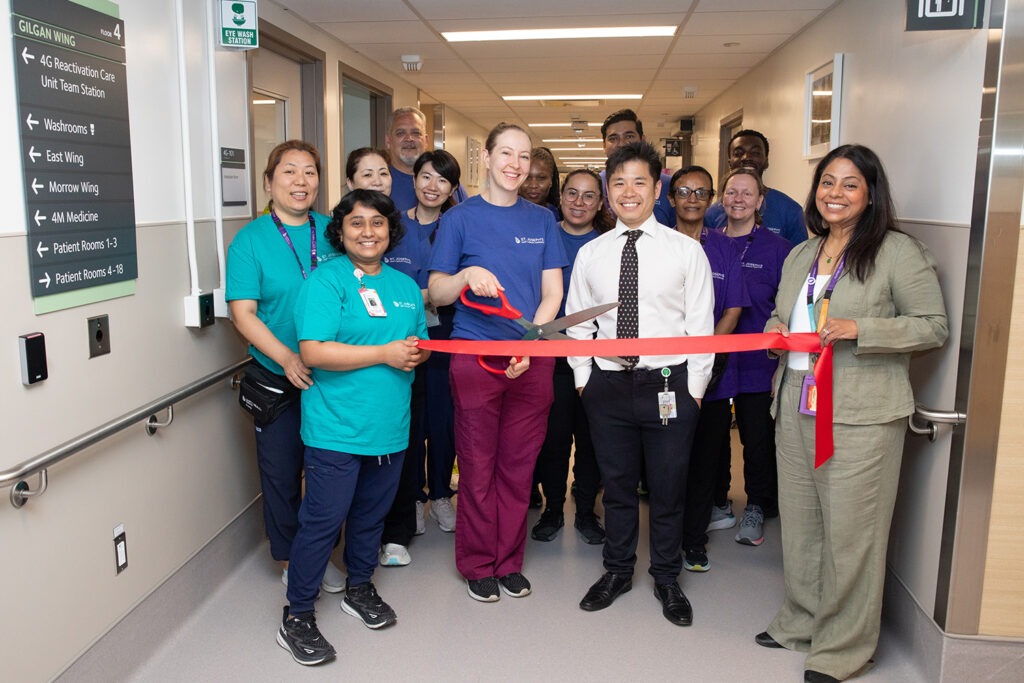
“One of the major draws to this unit is being able to help take pressures off the acute care inpatient units,” says Imam, who previously worked on an inpatient unit at St. Joseph’s and others at Trillium Health Partners. “I’m looking forward to helping patients get stronger and reactivated to a point that we can get them discharged into their next care environment.”
Rico shares that sentiment, and says she’s looking forward to the connections she’ll be able to make with patients and their families.
“Patients who are being reactivated can really benefit from an environment with dedicated staff who they see regularly and for extended periods of time – you don’t always get that on an acute care unit, where there are so many things going on,” she says. “The dedicated time and space and specialized equipment is really unique. When I worked at the RCC, I had a great experience and was able to see the improvements and impact in my patients. To be a part of that in the new RCU is exciting.”
By Anna Wassermann
Photos by Katie Cooper and Jae Yang Photography

